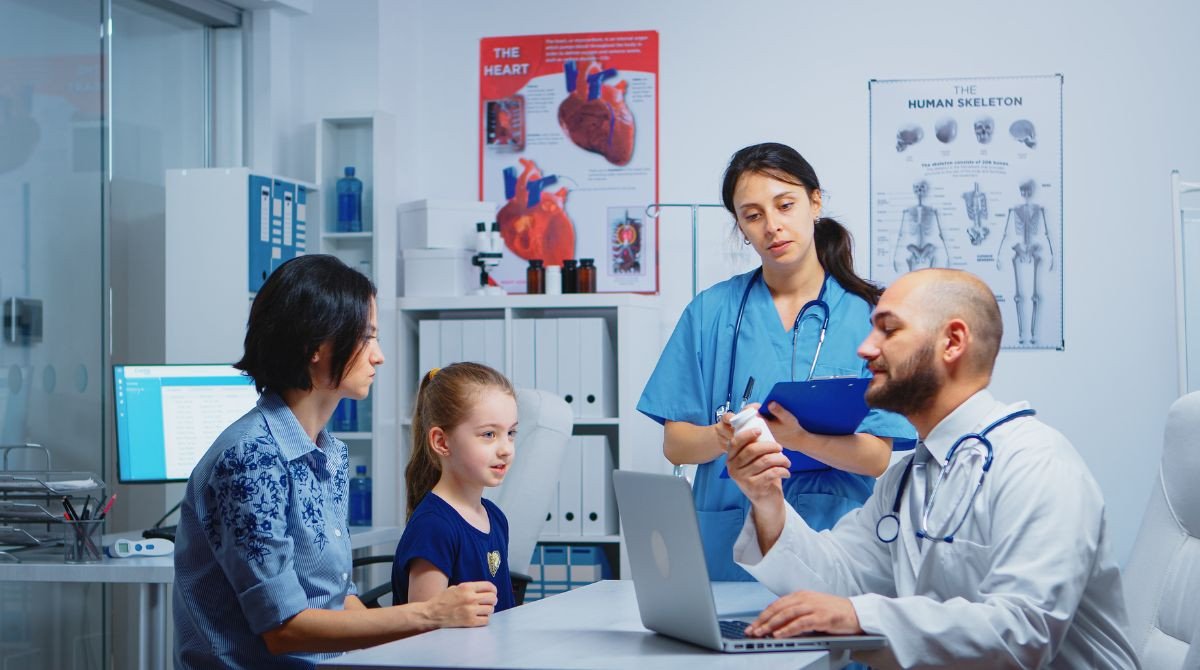- December 18, 2025

Imagine a healthcare system where you, the patient, are no longer a passive recipient of care, but an active participant in your own health journey. A system that revolves around your needs, preferences, and values, empowering you to make informed decisions and collaborate with your healthcare providers in real-time. This is the vision of patient-centric healthcare, and innovative technologies are rapidly making it a reality.
Gone are the days of one-size-fits-all healthcare. Patients are demanding more personalized, accessible, and convenient care experiences. They want to be heard, understood, and treated as individuals, not just medical cases. Fortunately, the healthcare landscape is undergoing a transformative shift, fueled by cutting-edge advancements in technology, to put patients firmly at the center of their own care.
Tech-Enabled Transformation:
Telehealth: Virtual doctor visits are no longer a novelty, but a mainstream convenience. Imagine skipping the long wait room and consulting your doctor from the comfort of your own home, saving time and reducing stress. Telehealth expands access to specialists and improves care coordination, especially for patients in remote areas.
Wearable Devices and Remote Monitoring: Wearable devices like fitness trackers and smartwatches are not just fitness fads; they're powerful tools for personalized health monitoring. These devices track vital signs, activity levels, and sleep patterns, providing valuable data to patients and healthcare providers alike. Imagine being able to proactively manage chronic conditions like diabetes or heart disease by remotely monitoring key health metrics.
Patient Portals and Health Information Apps: Empowering patients with access to their medical records and health information is key to patient-centric care. Secure online portals and mobile apps allow patients to view test results, schedule appointments, communicate with their providers, and even refill prescriptions, all at their fingertips. This transparency and increased engagement foster a sense of ownership and control over one's health.
AI-Powered Diagnosis and Treatment: Artificial intelligence is revolutionizing healthcare by analyzing vast amounts of medical data to identify patterns and trends. AI-powered algorithms can assist doctors in diagnosis, predict disease risks, and even personalize treatment plans, leading to more accurate and effective care.
Beyond Technology:
Technology is a powerful tool, but it's not the only driver of patient-centric care. Human-centered approaches are equally crucial.
Shared Decision-Making: Moving away from paternalistic models, healthcare providers are increasingly engaging patients in shared decision-making processes. This means presenting patients with their treatment options, explaining the risks and benefits of each, and respecting their informed choices.
Patient-Centered Communication: Effective communication is vital for building trust and understanding. Active listening, clear explanations, and addressing patients' concerns with empathy are all essential elements of patient-centric care.
Cultural Competency: Recognizing and respecting patients' cultural backgrounds, beliefs, and values is crucial for delivering culturally competent care. This ensures that patients feel comfortable, understood, and receive care that aligns with their preferences and needs.
The Road Ahead:
The journey towards truly patient-centric healthcare is ongoing. Challenges like data privacy concerns, digital literacy gaps, and unequal access to technology need to be addressed. However, the potential benefits are undeniable: improved patient satisfaction, better health outcomes, and a more sustainable healthcare system overall.
By embracing technological innovations and prioritizing human-centered values, we can create a healthcare system where patients are not just treated, but empowered, informed, and truly in control of their own health journeys. It's a future where every interaction, every decision, and every treatment plan revolves around one fundamental principle: putting patients first.